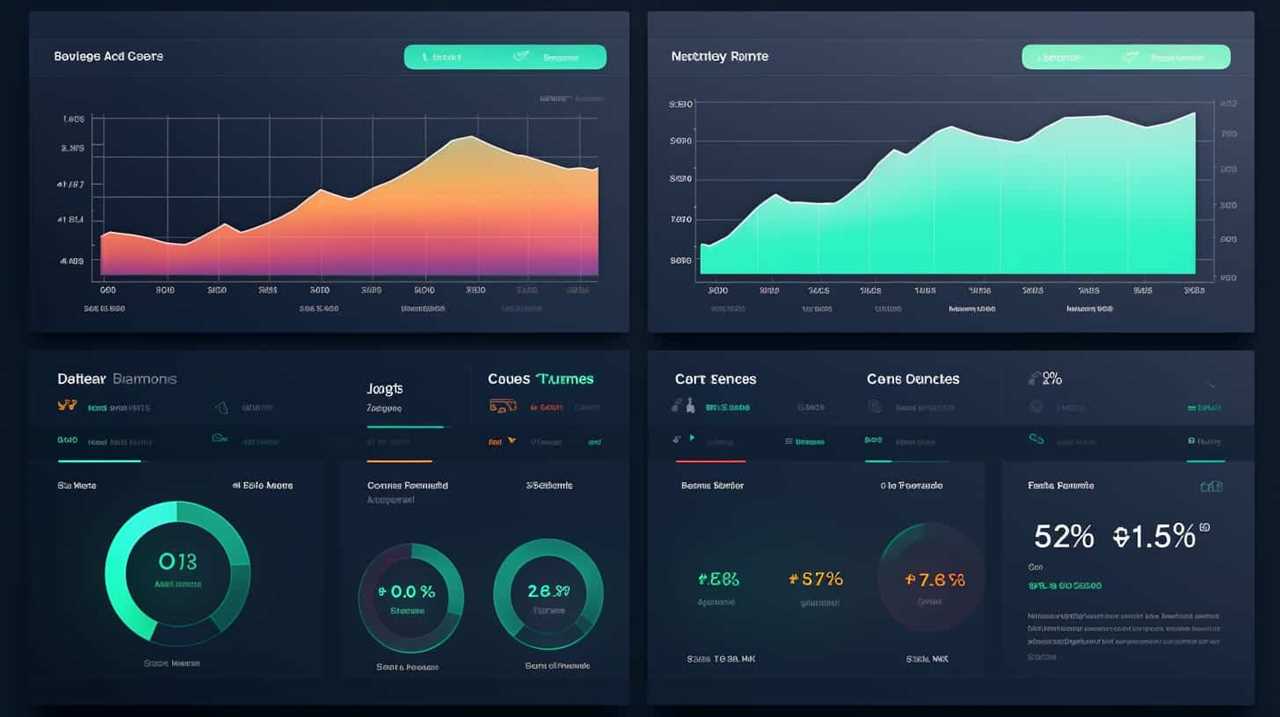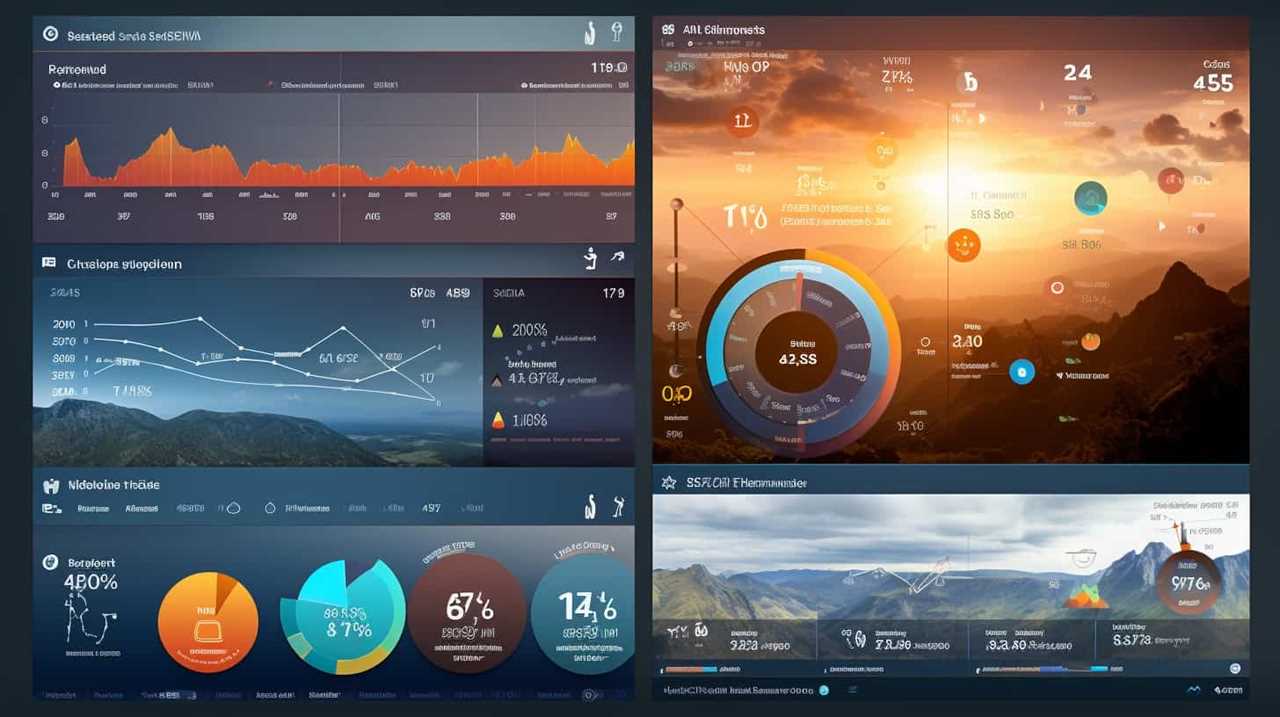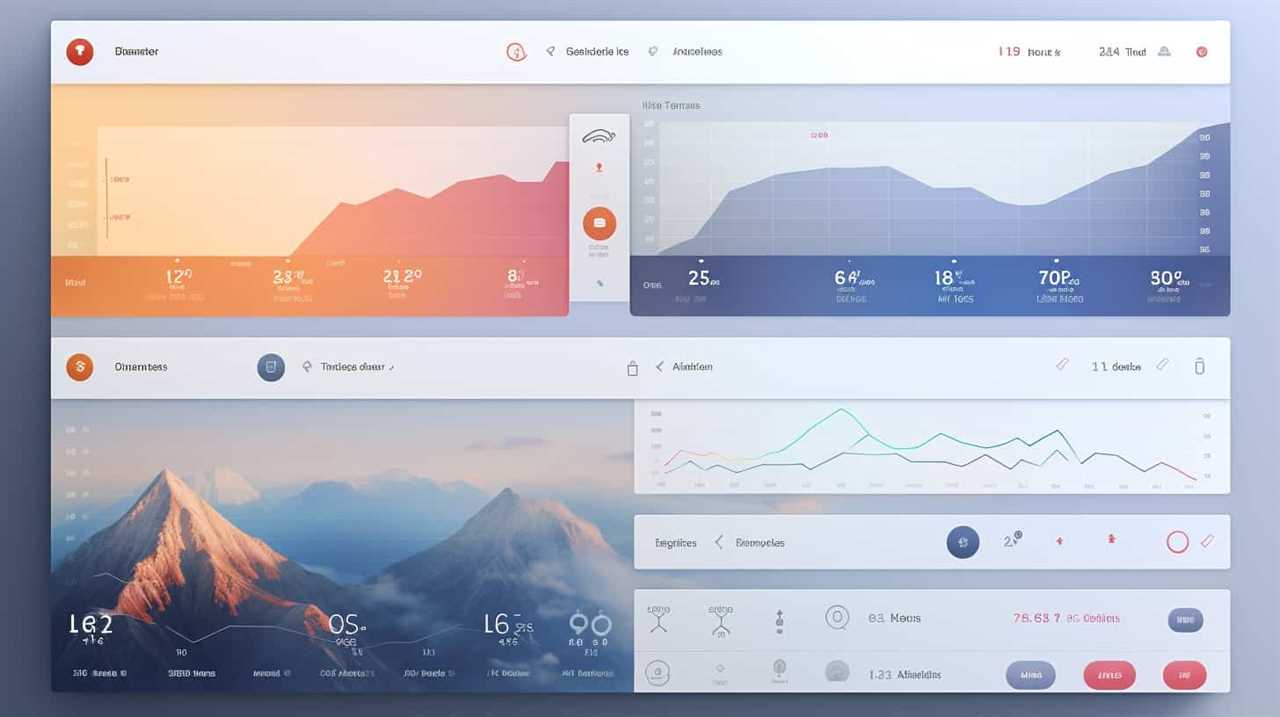Have you ever pondered what an SEO specialist earns? If so, the response might astonish you.
According to recent data, the average salary for an SEO specialist is around $60,000 per year. But that’s just the starting point. With experience and expertise, that number can skyrocket.
In this article, we’ll explore the factors that influence SEO salaries, from industry demand to geographic location. So, if you’re looking to master the art of SEO and reap the financial rewards, keep reading.
Key Takeaways
- Factors such as industry demand and supply, experience and expertise, salary versus skillset, and education and certifications all play a role in determining SEO salaries.
- Pursuing a degree or diploma in digital marketing, computer science, or web development, obtaining industry certifications, staying updated with industry trends, building a strong professional network, and investing in education and certifications can all contribute to career advancement in the SEO industry.
- Geographic location impacts SEO salaries, with higher cost of living areas typically offering higher salaries and competitive job markets also offering higher salaries.
- Company size and type also affect SEO salaries, with small companies offering rapid career growth, larger corporations offering higher base salaries, startups offering potential for significant career growth and equity, agencies providing exposure to different industries and faster career growth, and in-house roles offering stability and potentially higher salaries.
Industry Demand and Supply
In terms of industry demand and supply, we find that the compensation for SEO professionals varies greatly based on market conditions and the specific needs of businesses.

The SEO job market is influenced by the industry growth and the increasing importance of online presence for businesses. As more companies recognize the value of SEO in improving their visibility and attracting customers, the demand for SEO professionals has grown significantly. This growth has created a competitive job market where skilled SEO experts are in high demand.
Additionally, the compensation for SEO professionals is also influenced by the specific needs of businesses. Companies that require advanced SEO strategies or have a larger online presence tend to offer higher salaries to attract experienced professionals who can meet their specific requirements.
Experience and Expertise
When it comes to determining an SEO’s salary, experience and expertise play a crucial role. The more skilled and knowledgeable an SEO is, the higher their earning potential tends to be.
This is due to the high demand for SEO professionals who can effectively optimize websites and drive organic traffic.

Salary Vs. Skillset
Our team believes that a key factor in determining an SEO’s salary is their level of expertise and experience in the field. When it comes to salary versus skillset, here are four important considerations:
- Industry competition: The demand for skilled SEO professionals is high, especially in competitive industries. Companies are willing to pay top dollar for experts who can help them outrank their competitors and increase their online visibility.
- Experience: The more experience an SEO has, the higher their earning potential. Years of working on different projects and successfully achieving results can significantly impact an SEO’s salary.
- Expertise: Specialized knowledge in areas such as technical SEO, content optimization, or local SEO can command higher salaries. Employers value experts who can tackle specific challenges and deliver targeted solutions.
- Negotiation skills: SEO professionals who excel at negotiating their salaries can often command higher pay. Being able to effectively communicate the value of their skills and experience to employers is crucial.
Demand for SEO
A key determinant of an SEO’s salary is the demand for professionals with experience and expertise in the field. In today’s job market, the demand for SEO professionals is high, as businesses recognize the importance of optimizing their online presence.
As technology continues to evolve, so does the need for skilled SEO practitioners who can navigate the ever-changing algorithms and strategies. With the increasing reliance on digital marketing, SEO has become an essential component of any successful marketing campaign.
As a result, the salary trends for experienced and knowledgeable SEO professionals are on the rise. Companies are willing to pay a premium for individuals who can deliver tangible results and help improve their online visibility.

Therefore, having a strong skillset and staying up-to-date with the latest SEO practices can greatly impact an SEO’s earning potential.
Education and Certifications
When it comes to being an SEO professional, education and certifications play a crucial role in establishing credibility and expertise in the field.
Having a solid educational background in marketing, business, or a related field provides a foundation for understanding the principles of SEO.
Additionally, obtaining relevant SEO certifications demonstrates a commitment to staying up-to-date with industry best practices and can open doors to career advancement opportunities.

Importance of Education
With the ever-evolving nature of SEO, staying ahead of the game requires continuous learning and the acquisition of relevant certifications. Education plays a crucial role in the success of an SEO professional, offering numerous benefits and helping them meet the ever-changing demands of the industry.
Here are four reasons why education is important for SEO professionals:
- Stay updated: The SEO landscape is constantly evolving, and education allows professionals to stay up-to-date with the latest trends, algorithms, and strategies.
- Develop expertise: Education provides the necessary knowledge and skills to excel in the field, allowing SEO professionals to become experts in their craft.
- Gain a competitive edge: With the increasing competition in the SEO industry, having a solid educational background gives professionals a competitive advantage over others.
- Build credibility: Education helps establish credibility and trust among clients and employers, showcasing a commitment to excellence and professionalism.
By investing in education and continuously expanding their knowledge, SEO professionals can enhance their expertise, stay ahead of the curve, and achieve long-term success in the dynamic world of SEO.
Now, let’s explore the importance of relevant SEO certifications.

Relevant SEO Certifications
Continuing our exploration of the importance of education for SEO professionals, relevant SEO certifications further enhance our expertise and credibility in the industry. These certifications not only validate our knowledge and skills but also demonstrate our commitment to staying updated with the latest trends and best practices in search engine optimization.
To help you navigate through the multitude of certification options available, here is a list of some of the most recognized SEO certifications:
| Certification | Issuing Organization |
|---|---|
| SEO Certified Professional | Market Motive |
| Google Ads Certification | |
| HubSpot Content Marketing Certification | HubSpot |
| Yoast SEO Certification | Yoast |
Earning these certifications not only expands our professional qualifications but also opens up new job prospects. Employers often seek candidates who hold these certifications, as they provide assurance of our expertise and dedication to our craft. With these certifications in hand, we are better equipped to advance in our careers and seize the various career advancement opportunities available in the SEO industry.
Career Advancement Opportunities
How can we leverage education and certifications to advance our careers in the SEO industry? Here are four ways to maximize career growth and salary comparison in the field:

- Pursue a degree or diploma: Completing a relevant educational program can provide a solid foundation in SEO principles and strategies. Consider programs in digital marketing, computer science, or web development.
- Obtain industry certifications: Certifications like Google Analytics, Google Ads, and HubSpot SEO can demonstrate your expertise and boost your credibility in the industry.
- Stay updated with industry trends: Continuously learning about the latest SEO techniques, algorithms, and tools is crucial. Attend conferences, webinars, and workshops to stay ahead of the curve.
- Build a strong professional network: Networking with industry professionals, attending meetups, and engaging in online communities can open doors to new opportunities and collaborations.
By investing in education and certifications, professionals can enhance their skills, increase their earning potential, and position themselves for career advancement in the SEO industry.
Now, let’s explore how geographic location can impact SEO salaries.
Geographic Location
In our experience, SEO professionals are often paid differently based on their geographic location. The cost of living and the job market in a specific area can greatly influence the salary of an SEO professional. To illustrate this point, let’s take a look at the table below:
| Location | Average Salary | Cost of Living Index |
|---|---|---|
| New York | $70,000 | 187.2 |
| San Francisco | $80,000 | 272.6 |
| Austin | $60,000 | 100.7 |
| Chicago | $65,000 | 116.6 |
| Atlanta | $55,000 | 99.1 |
As you can see, professionals working in higher cost of living areas like New York and San Francisco tend to earn higher salaries compared to those in lower cost of living areas like Atlanta and Austin. This is due to the increased expenses associated with living in these cities. Additionally, the job market in each location can also impact salary levels, with more competitive markets often offering higher salaries to attract top talent.

Company Size and Type
When considering the salary of an SEO professional, the size and type of the company they work for play a significant role. Here are four key factors to consider when it comes to career growth and salary negotiation in relation to company size and type:
- Small companies: Working for a small company can offer opportunities for rapid career growth, as employees often have more responsibilities and chances to make a significant impact.
- Large corporations: Larger companies tend to have more established salary structures and may offer higher base salaries. However, career growth may be slower due to a more hierarchical structure.
- Startups: Joining a startup can offer the potential for significant career growth and the opportunity to earn equity in the company. However, salaries may be lower initially.
- Agency vs. in-house: Agencies often work with multiple clients, providing exposure to different industries and faster career growth. In-house roles may offer more stability and potentially higher salaries.
Understanding the size and type of company you work for can help you make informed decisions about your career growth and salary negotiation as an SEO professional.
Additional Factors Affecting SEO Salary
Based on our research, several additional factors significantly impact the salary of an SEO professional. These factors include career growth opportunities and market trends.
When it comes to career growth, SEO professionals who continuously update their skills and stay up-to-date with the latest industry trends are more likely to earn a higher salary. This is because companies value employees who can adapt to changes in the digital landscape and drive results. Additionally, professionals who take on leadership roles or specialize in niche areas of SEO may also see an increase in their earning potential.

Market trends also play a crucial role in determining an SEO professional’s salary. As the demand for SEO services continues to grow, particularly in industries such as e-commerce and digital marketing, the competition for skilled SEO professionals increases. This can drive up salaries as companies are willing to pay a premium for top talent.
To summarize, staying ahead of market trends and focusing on career growth opportunities can greatly impact an SEO professional’s salary. By continuously learning and adapting to changes in the industry, professionals can position themselves for higher earning potential.
| Factors | Impact on SEO Salary |
|---|---|
| Career growth | Higher potential |
| Market trends | Increased demand |
Frequently Asked Questions
Are There Any Other Factors That Can Affect an SEO Professional’s Salary, Aside From the Ones Mentioned in the Article Sections?
Factors affecting SEO professional salaries include experience, education, and industry demand. Additionally, the impact of remote work on SEO salaries should not be overlooked, as it can increase earning potential and access to a wider range of job opportunities.
Are There Any Specific Industries or Niches That Tend to Offer Higher Salaries for SEO Professionals?
In certain industries, SEO professionals command higher salaries, akin to a skilled captain steering a ship through turbulent waters. Various factors like demand, competition, and expertise also influence SEO professional salaries.

How Does the Level of Competition in the SEO Industry Impact the Salaries Offered to Professionals?
The level of competition in the SEO industry greatly impacts the salaries offered to professionals. Factors such as demand, experience, and expertise play a role in determining the compensation for SEO professionals.
Can an SEO Professional Expect to See an Increase in Salary as They Gain More Experience in the Field?
As we gain more experience in the field, we can expect to see an increase in salary. This is because our expertise and skills become more valuable, leading to higher compensation opportunities.
Are There Any Specific Skills or Specializations Within SEO That Can Lead to Higher Salary Opportunities?
Skills and specializations within SEO can greatly impact salary opportunities. Factors such as experience, competition, and industry niche play a significant role. For example, mastering technical SEO or specializing in e-commerce can lead to higher paying positions.
Conclusion
So, what does an SEO get paid?

Well, it’s a bit like trying to decipher the secret formula for the perfect ranking algorithm.
It’s a mix of industry demand, experience, education, and location.
Throw in the size and type of the company they work for, and you’ve got yourself a salary that can vary as much as search engine results.
It’s a constantly changing landscape, but one thing’s for sure – being an SEO can definitely pay off.










